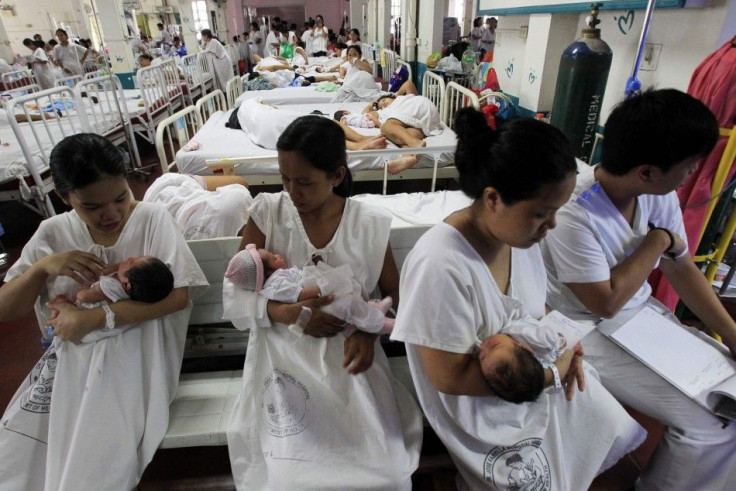Having more children slows down ageing, claims new study

Women who have more children age slower, according to a new study conducted on indigenous women in Guatemala. Researchers from the Simon Fraser University claim that women who have more children have longer telomeres, slowing down the cellular ageing process.
Telomeres are the tips at the end of each DNA strand that protect the chromosomes from damage. Longer telomeres are vital to cell replication and are associated with longevity, the researchers said. Each time a cell replicates, the telomeres become shorter, until they become too short and leave the chromosomes vulnerable to damage. Consequently, the cells age and stop working effectively.
Medical News Today reports that higher reproductive behaviour is linked with accelerated ageing. However, this new study challenges this theory.
The researchers studied the number of children born to 75 Kaqchikel Mayan women from two rural communities in Guatemala. The team assessed their telomere lengths twice through saliva samples and buccal swabs between 2000 through 2013.
Women who had a higher number of surviving children had longer telomeres than those who gave birth to fewer children. The experts suggest that each additional childbirth is linked with 0.059 more telomere units.
“The slower pace of telomere shortening found in the study participants who have more children however, may be attributed to the dramatic increase in oestrogen, a hormone produced during pregnancy,” explained Pablo Nepomnaschy, head of the Maternal and Child Health Laboratory at the SFU Faculty of Health Sciences, in a media release. “Oestrogen functions as a potent antioxidant that protects cells against telomere shortening.”
Nepomnaschy also studied the participants’ environment. Additionally, the researchers observed that women who bore numerous children received more social support from their relatives and friends. Apparently, support leads to an increase in the amount of metabolic energy that can be used for tissue maintenance, which slows the ageing process.
According to Nepomnaschy and postdoctoral researcher Cindy Barha, their research is the first to examine the direct association between telomere shortening and the number of children over time. Nevertheless, the researchers said that more studies must be conducted to investigate the link between biological ageing in women and reproductive frequency in different ethnicities and social backgrounds.




















